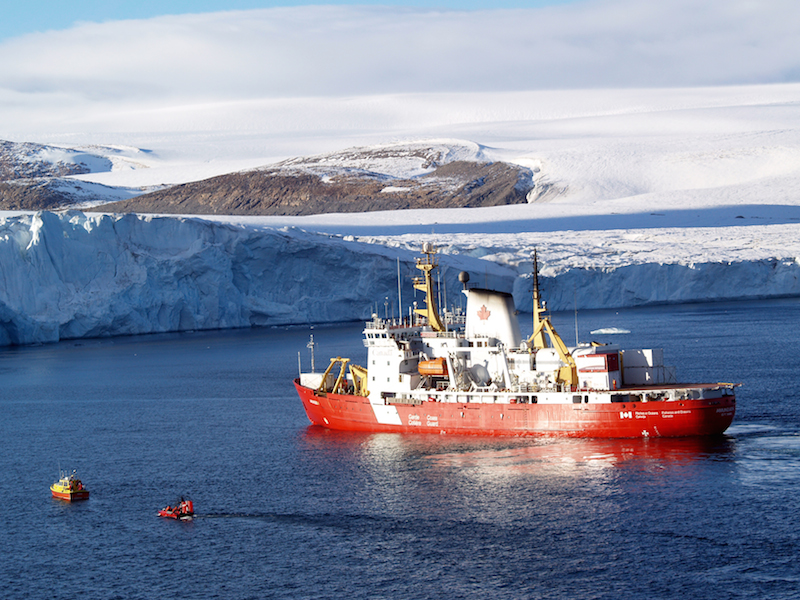
UM-led study warns arctic could be ‘beyond recognition’ by 2100
A groundbreaking study warns that the Arctic is undergoing rapid and dramatic changes due to accelerating global temperatures, with potentially irreversible consequences by the end of the century.
Published in Science, the UM-led study predicts a near-unrecognizable Arctic landscape by 2100 if global commitments to reduce greenhouse gas emissions (GHGs) remain unchanged.
Led by Julienne Stroeve, Canada 150 Research Chair in Climate Forcing of Sea Ice, and Dorthe Dahl-Jensen, Canada Excellence Research Chair in Arctic Sea Ice, Freshwater-Marine Coupling and Climate Change, the research highlights that the Arctic is heating at four times the global average rate, posing significant environmental and socio-economic challenges.

Dr Julienne Stroeve
Accelerating Changes and Their Consequences
“The Arctic is warming at four times the rate of the rest of the planet,” said Stroeve. “At 2.7 degrees Celsius of global warming, this scenario would dramatically reshape the Arctic, the fastest-warming region on earth.”
Key projections of the study include:
- Almost every day will be hotter than the extreme temperatures of the past.
- The Arctic Ocean will be ice-free for several months each summer.
- The part of Greenland’s ice sheet that stays above freezing for over a month will be four times larger than before, accelerating rising sea levels.
While these transformations pose severe risks, the researchers emphasize that immediate and coordinated global action can help mitigate the impacts and preserve the Arctic’s crucial role in the Earth’s climate system.

Solutions for a Sustainable Future
This study underscores the opportunities for proactive intervention to avoid these dire environmental consequences. Governments, industries, and individuals all have roles to play in reducing GHGs, expanding conservation areas, and integrating Indigenous knowledge into climate strategies.
“If we act now with bold climate policies and innovative technologies, we can still make a difference,” says Stroeve. “The Arctic is a key part of the global climate system, and its future truly lies in our hands.”
Continued scientific research is crucial in shaping effective policies. Monitoring Arctic changes will improve climate models and adaptation strategies.
“We must combine scientific advancements with community-driven solutions,” Stroeve says. “By working together, we can develop strategies that not only protect Arctic ecosystems but also support the people who depend on them.”
Global Climate Action and Collaborative Research Needed
The research, supported by funding from the Canada 150 Research Chairs Program and other institutions, utilized data from NSIDC’s Sea Ice Today and Ice Sheets Today projects to provide a comprehensive overview of Arctic changes. Collaborators included the University of Ottawa, Northern Arizona University, and the University of Hamburg.
While these transformations pose severe consequences, the researchers emphasize that immediate and coordinated global efforts can help mitigate the impacts and preserve the Arctic’s crucial role in the Earth’s climate system for future generations.
Research at the University of Manitoba is partially supported by funding from the Government of Canada Research Support Fund.






